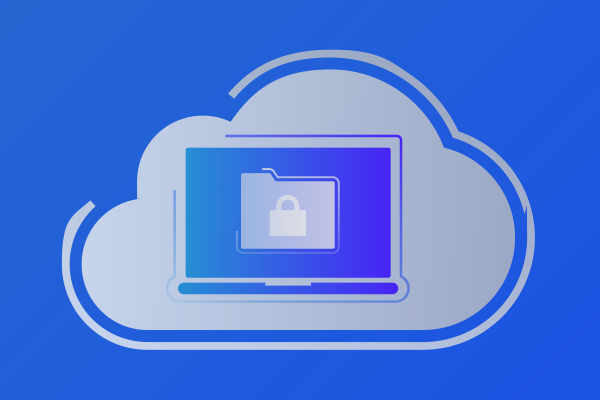What Is a Private Cloud?
With data breaches increasing in frequency 17% year-over-year, online security is more important than ever. Unfortunately, complying with security standards can often come at the cost of flexibility. Utilizing a private cloud can be the solution to provide both security and flexibility.
Storing information and data on a private cloud server can give you the flexibility to manage and monitor customer data as well as compliance with today’s cybersecurity standards. Below we outline the essential guide for considering a private cloud.
What is a Private Cloud?
A Private Cloud is a type of cloud computing where the cloud infrastructure is privately owned and accessible to a single organisation. A private cloud is normally hosted at a company’s own data center or at a third party facility where a private cloud managed service provider (MSP) provides private cloud hosting services.
A virtual private cloud has several advantages. It has the security and control of a physical premises server, and also offers the flexibility that comes with private cloud solutions.
This differs from a public cloud in which server resources get shared as the customer has use of the whole system. For many companies, it is the only way to meet strict data storage compliance. It is also possible to run hybrid cloud computing services which are a mix of both public and private.
Why use a private cloud?
Here are some reasons why organizations opt for private cloud computing with MSPs:
Flexible Security
Due to the fact that a private cloud typically is limited to a company’s own traffic or set types of transactions, there are benefits with private cloud security vs public clouds. Public cloud can be fairly open and handle large volumes of traffic from multiple locations which may create uncertainty in the bandwidth available to a single server. As private clouds typically include dedicated infrastructure, they allow for more control over the server, network, and application security.
Scaleable and Predictable Performance
As the traffic originates from a limited number of users and access is controlled, private clouds can scale and deliver more predictable workloads, which doesn’t affect other organizations, sharing a multi-tenant infrastructure.
Total cost of ownership
It can be expensive to set up the infrastructure to have a dedicated private cloud for most businesses. In public clouds there could be all sorts of extra costs such as workloads, time, users, data size, data transfer (egress and ingress), etc. This is why leveraging a private cloud MSP can be a smart idea for your customers to get a predictable pricing of data storage without all the additional charges and setup costs.
Regulatory Compliance
As regulations come into force across the world such as GDPR, HIPAA, etc it’s more vital than ever to know where data resides and where the computing occurs.
How Does Private Cloud Infrastructure Work?
There are several technologies at work within the cloud. The most important of which is virtualization.
Virtualization gives you, as an MSP, the ability to create simulated environments and resources from a hardware system. Virtual machines are set up using a hypervisor, which will allow you to split the space into distinct environments and run virtual machines.
Suite of management tools will give your customerscontrol over their data, helping to track usage and recover data and systems when needed.
Benefits of a Private Cloud
There are several benefits to using private cloud platforms, most importantly:
Hardware and Software Control
Private cloud software allows customers to design their own packages that only include the services they need for their business. Therefore, the private cloud is often the preferred choice.
Customization Options
With a private cloud, you can customize servers to the needs of your customers. The software can also be customized through the use of add-ons and flexible configuration options.
Increased Security
Private cloud platforms run in the controlled environment, behind your firewall, giving you and your customers access control and greater visibility into security.
Differences Between Private and Public Clouds
When signing up for public clouds, the user becomes part of a massive multi-tenant environment. The resources available get shared between the other users occupying the same space, which could be thousands of users. The user can lose or have limited access to resources as others take up their space.
Public cloud providers own and maintain the infrastructure. Payments are usually done on a subscription method and by usage, including data storage, compute, and data transfer (egress and ingress).
There are a few reasons why people may choose a public cloud over private cloud MSPs. If they have a small-scale operation, it may work out to be cheaper and more cost-effective due to a low entry cost and scalability.
Because public cloud providers have many users, they can often offer new hardware and software very quickly. This makes it easier for companies to install, rather than having to do it themselves on private clouds.
What is a Hybrid Cloud?
A hybrid cloud is a mix of both public and private. It uses a private cloud connected to a public cloud infrastructure. In this method, an organization can operate across two environments.
One major benefit of a hybrid cloud is greater flexibility. The public cloud will act as an extension of the private cloud. Workloads can move across servers as costs and needs change.
Software and service used by both the private and public clouds need to be fully compatible, which can take a lot of integration and setup. It is best suited to large businesses that handle large amounts of data. In return, the control of the private cloud and the simplicity of a public one is sacrificed.
What is the Datto Cloud?
The Datto Cloud is built and designed for business continuity and disaster recovery. It hosts backup images and multiple layers of security to protect them. This means client data is quickly and easily recoverable at a lower cost than many other private cloud storage solutions.
Datto Private Cloud Pricing
Unlikepublic clouds that charge for resource utilization during backup, Datto has a simple pricing structure. Data storage, disaster recovery, DR testing, and data transfer (egress and ingress) are included with the service without additional costs.
Datto Cloud Security
The Datto product suite is designed around understanding security, preventing attackers from getting hold of vital backup solutions. Datto has a team of in-house security professionals and multiple security layers including:
Two-factor authentication
Hardened backup appliance
Multiple gates for internal access
Cloud Deletion Defense
AES 256 encryption
All of these features combined make it one of the most secure private cloud storage options MSP can dream of. A flat fee disaster recovery makes getting your customers’ infrastructure back up and running safe and easy.



